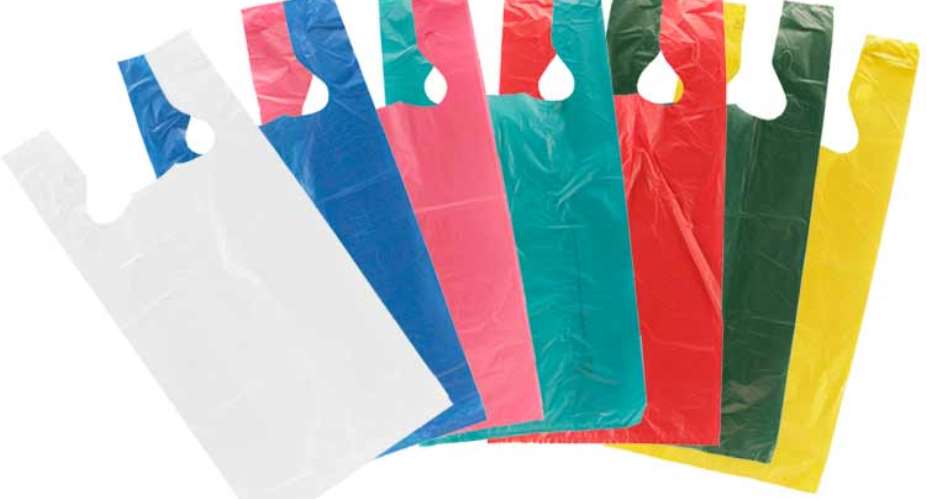If we can ban the usage of polythene, it is going to remarkably improve on the sanitation situation in the country.-Vincent Asamoah, Dep. Min. of Youth and Sports.
Many people have raised concerns on the use of polythene bags in the country and have accordingly suggested a ban to save the environment from total destruction. Mountains of garbage that have been found in most commercial towns and cities across the length and breadth of the country have been blamed on the use of plastic carrier bags by most Ghanaians.
Mr Vincent Asamoah has also added his voice to the call for a policy that will eventually lead to a ban being placed on the use of polythene bags in the country. He made the suggestion when he launched the 10th anniversary celebration of the Accra zone of Zoomlion Ghana Limited. The theme for the celebration was “Zoomlion@10, Driving impactful waste management in Ghana and beyond.”
Mr Asamoah made reference to the East African country of Rwanda which banned the use of polythene bags in 2008 and argued that Ghana must follow suit as this was the most effective way to deal with the plastic menace.
The ban has become necessary as we have not been able to effectively manage plastic waste in the country. Despite vigorous education to create awareness about the dangers of environmental pollution, we continue to litter the streets and other public places with waste, most of it plastic.
The plastics come from bags of satchets that contain drinking water and polythene bags that we use to carry food and other articles.
With our lack of technology to recycle plastic waste, we burn it which results in the release of toxic fumes that pollute the air and cause ill health to people. Water bodies may be polluted with waste that may cause disease leading to death of aquatic life and humans.
When drains get choked with garbage and it rains heavily, especially for long hours, flooding results with its attendant loss of life and properties worth millions of cedis. The events of June 3, 2015 which claimed many lives and properties should not be lost on us. It was all due to a huge explosion of a filling station that caught fire and excessive flooding of the city of Accra.
When visitors to our country are greeted with heaps of garbage, it dents our image as a people and as a country. Keeping our environment clean and in good sanitary condition is a collective responsibility.
We must protect the environment from destructive activities so as to ensure its sustainability for current and future generations. When we destroy the environment, we are literally destroying the very source of our livelihood. Our life is dependent on a clean and healthy environment.
Since we have not lived up to expectation in terms of managing our waste effectively and efficiently, legislation to ban the use of plastics should be given serious consideration by government and parliament.
The ban should be limited to polythene bags and bags of satchet for drinking water. The ban should affect the manufacture, distribution or importation and use of polybags in the country.
Existing laws on environmental protection should be rigidly enforced to the letter. Offenders must be prosecuted regardless of their party affiliation, gender, race or social status.
All that is needed is the political will to enact laws that will protect and preserve the environment. Rwanda banned the use of polythene bags in 2008 and the results have been phenomenal: it is considered as one of the cleanest countries in Africa. Bangladesh banned plastics in 2002 with some degree of success. In 2006 Tanzania passed a law banning plastic bags. This could not have happened without the political will of the leadership of the affected countries.
While advocating for a policy to ban plastic bags, those in that business must learn alternative trades such as manufacturing paper bags and other handicraft to earn a decent living.
The media should help educate the public about the menace of plastics and why there is the need for its ban to save the environment. A country with a clean environment is an important destination for foreign investors.
In conclusion, Ghana must take a cue from countries that enacted laws to ban plastics and do the same. I am optimistic such a measure when implemented will pay off in the long term. When people are healthy, they can increase productivity which can translate into economic prosperity for the country.
ARK AWOLUGUTU
[email protected]
Cell: 0208 455 296





 We’ll no longer tolerate your empty, unwarranted attacks – TUC blasts Prof Adei
We’ll no longer tolerate your empty, unwarranted attacks – TUC blasts Prof Adei
 Bawumia donates GHc200,000 to support Madina fire victims
Bawumia donates GHc200,000 to support Madina fire victims
 IMF to disburse US$360million third tranche to Ghana without creditors MoU
IMF to disburse US$360million third tranche to Ghana without creditors MoU
 Truck owner share insights into train collision incident
Truck owner share insights into train collision incident
 Paramount chief of Bassare Traditional Area passes on
Paramount chief of Bassare Traditional Area passes on
 Two teachers in court over alleged illegal possession of BECE papers
Two teachers in court over alleged illegal possession of BECE papers
 Sunyani: Victim allegedly shot by traditional warriors appeals for justice
Sunyani: Victim allegedly shot by traditional warriors appeals for justice
 Mahama vows to scrap teacher licensure exams, review Free SHS policy
Mahama vows to scrap teacher licensure exams, review Free SHS policy
 Government will replace burnt Madina shops with a new three-story, 120-store fac...
Government will replace burnt Madina shops with a new three-story, 120-store fac...
